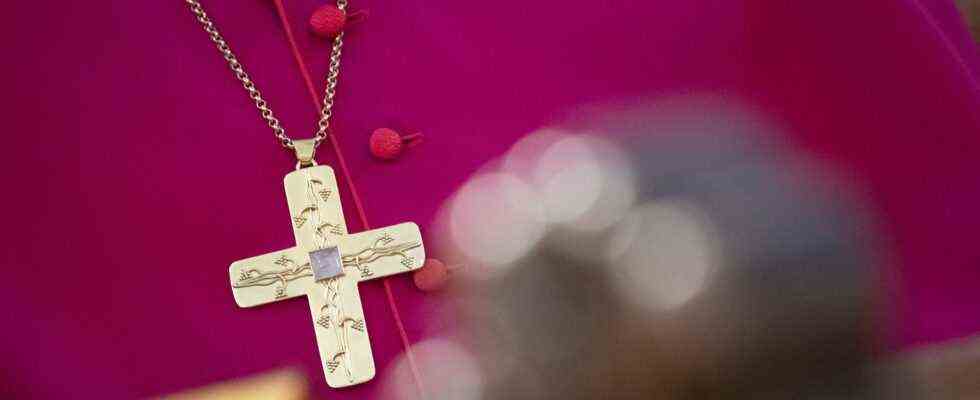Status: 23.09.2021 8:36 p.m.
Tough struggle for reforms: At the end of the bishops’ conference it was agreed that something must change. For some bishops, however, many proposals went too far. It is still unclear where the Synodal Path leads.
Even before this meeting it was clear: The Catholic bishops are divided on the question of how to proceed with the reform of the Catholic Church, the Synodal Way. The contrasts also came to light at the autumn meeting of the bishops in Fulda. “We do not agree on everything,” said the chairman, Bishop Georg Bätzing. But they all agree that something has to change.
We are at a crossroads. That is clear to us. Everyone can see the willingness to really do everything, so that people trust us again and that we do not further disappoint the trust of those who belong to us.
But many suggestions go too far for a conservative minority, for example when it comes to reforming sexual morality or the question of how the church base is involved in the appointment of bishops. Bishops like Rudolf Voderholzer from Regensburg or Stefan Oster from Passau have already made their rejection of individual reform proposals public – on their own website with “alternative” texts. However, after the conference in Fulda, the Bishop of Würzburg, Franz Jung, no longer sees the danger that they or other bishops will no longer follow the synodal path.
As I am now following the discussion in our midst, I am firmly convinced that everyone will join in. It is the determined will of all critics to go down this path together.
In one week the bishops will meet together with representatives of the Central Committee of German Catholics for the second assembly of the Synodal Way. The chairman of the Bishops’ Conference, Bätzing, swore his colleagues to this date at the opening service in Fulda and demanded their “spirit and the courage to repent”.
Repent! Rethink! Indeed, this is more and different than just a little adjustment and updating. But everything below does not do justice to the force of the triggering scandal and the drama of the secession.
The bishops’ conference also dealt with the abuse scandal at this meeting, especially the public criticism of the compensation process for victims of abuse. The church is guided by the state tables of compensation for pain and suffering. But the procedure is not transparent, the recognition benefits paid are too low, according to the complaint of those affected. The bishops now want to examine this criticism, but adhere to the procedure in principle.
We want to stick to these criteria that we have established. But we have to try to change the things that are now causing injuries to those affected.
The impatience at the grassroots level – and pressure from Rome. The German bishops sit between all stools. At this bishops’ conference, the Pope’s ambassador in Germany, Nuncio Nikola Eterovic, urged the bishops to keep the unity of the Church alive and to follow the Pope’s instructions. For the popular church movement “We are Church” a “barely disguised threat”. Spokesman Christian Weisner calls for the recall of the nuncio.
This is really yesterday’s theology and church politics. We should take a look at how the people in Germany, especially in the Archdiocese of Cologne, continue to leave the church, how the Catholics agree to church teaching.
There was no new news about Cologne at this bishops’ conference. Even if rumors have been circulating in the past few days that a decision by the Pope on the future of Cologne Archbishop Rainer Maria Woelki is imminent. After the dispute over the abuse study in Cologne, two visitators examined Cardinal Woelki’s administration on behalf of the Pope. With what result? “I can’t tell you anything about that,” said Bätzing at the end of the conference.

